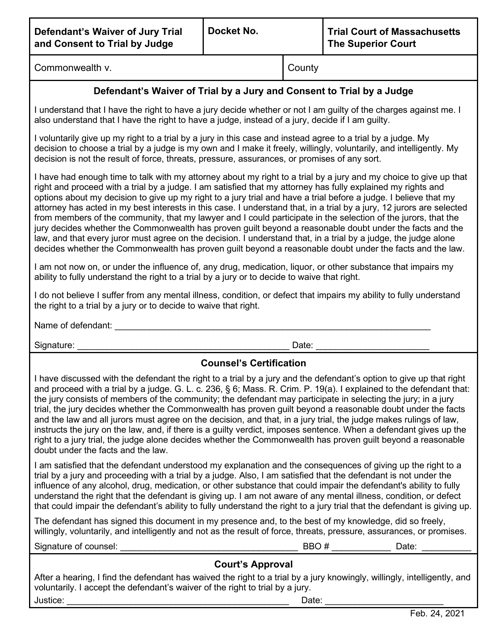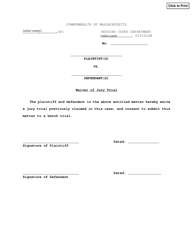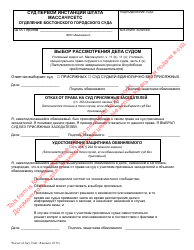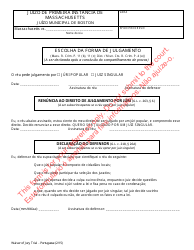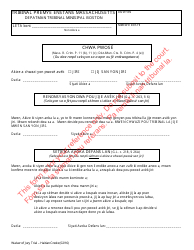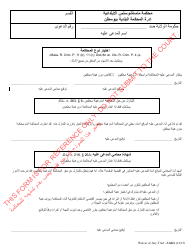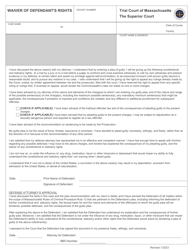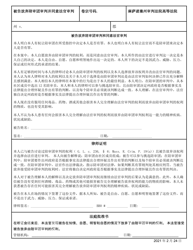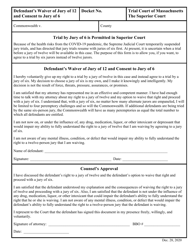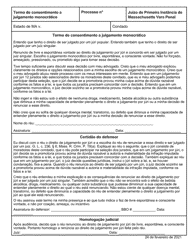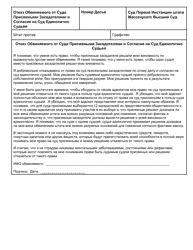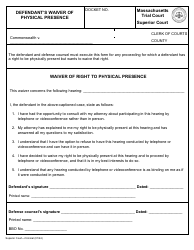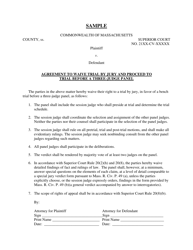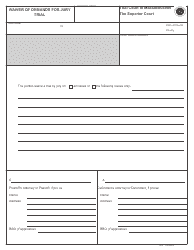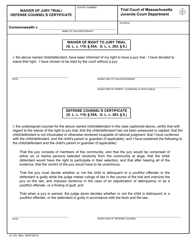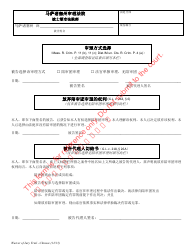This version of the form is not currently in use and is provided for reference only. Download this version of
the document
for the current year.
Defendant's Waiver of Jury Trial and Consent to Trial by Judge - Massachusetts
Defendant's Waiver of Jury Trial and Consent to Trial by Judge is a legal document that was released by the Massachusetts Superior Court - a government authority operating within Massachusetts.
FAQ
Q: What is a defendant's waiver of jury trial?
A: A defendant's waiver of jury trial is when the defendant chooses to have their case heard by a judge instead of a jury.
Q: What is consent to trial by judge?
A: Consent to trial by judge is when both the defendant and the prosecution agree to have the case heard and decided by a judge instead of a jury.
Q: Why would a defendant choose to waive their right to a jury trial?
A: A defendant may choose to waive their right to a jury trial for various reasons, such as believing that a judge may be more sympathetic or knowledgeable about the law.
Q: Is a defendant required to have a jury trial?
A: No, a defendant has the option to waive their right to a jury trial and have their case heard by a judge instead.
Q: Does the prosecution have to agree to a trial by judge?
A: Yes, both the defendant and the prosecution must agree to have a trial by judge.
Q: What is the process for waiving a jury trial and consenting to trial by judge?
A: The process for waiving a jury trial and consenting to trial by judge may vary by jurisdiction, but generally, it involves the defendant formally expressing their desire to waive a jury trial and obtaining the agreement of the prosecution and the judge.
Q: Are there any limitations on waiving a jury trial?
A: There may be certain limitations or restrictions on waiving a jury trial depending on the jurisdiction and the nature of the case.
Q: What are the potential advantages of having a trial by judge?
A: Some potential advantages of having a trial by judge include a faster trial process, as judges may have more flexibility in scheduling, and the belief that a judge may be more impartial and objective than a jury.
Q: Can a defendant change their mind after waiving a jury trial?
A: In some cases, a defendant may be allowed to change their mind and request a jury trial, but it would depend on the specific rules and procedures of the jurisdiction.
Form Details:
- Released on February 24, 2021;
- The latest edition currently provided by the Massachusetts Superior Court;
- Ready to use and print;
- Easy to customize;
- Compatible with most PDF-viewing applications;
- Fill out the form in our online filing application.
Download a fillable version of the form by clicking the link below or browse more documents and templates provided by the Massachusetts Superior Court.
